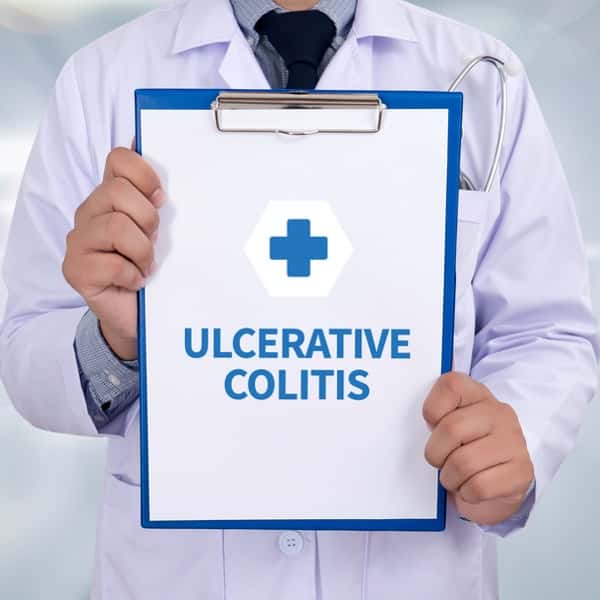
Upsides and Downsides of Immune-Modifying Drugs
This week’s radio show features one of our favorite guests, Dr. Robynne Chutkan. She is a gastroenterologist in Washington, DC and is a brilliant communicator. You may want to listen to it through your local public radio station or get the live stream at 7 am EDT on your computer or smart phone (wunc.org). Here is a link so you can find which stations carry our broadcast.
We will be talking about some of the most successful drugs in the pharmacy. They are referred to as “biologics” or immune modifying drugs. Perhaps you recognize brand names like Enbrel, Remicade or Humira. What do these medicines do well, and what are the downsides? If you can’t listen to the broadcast, you may wish to hear the podcast later. You can subscribe through your favorite podcast provider, download the mp3 using the link at the bottom of the page, or listen to the stream on this post starting on October 9, 2023.
Upsides and Downsides of Immune-Modifying Drugs:
The immune system has a lot of important work to do, warding off infections and scanning the body for cancerous growths. But sometimes it goes a bit haywire and begins attacking normal tissue. That is the reason behind autoimmune diseases like psoriasis, rheumatoid arthritis and ulcerative colitis. Doctors have many ways to treat these conditions, but the most potent medications are monoclonal antibodies like infliximab (Remicade). That “mab” at the end of the generic name is a signal for Monoclonal AntiBody.
Remicade and other immune-modifying drugs like Enbrel or Humira calm the immune system down and ease inflammation. That’s why they can be so helpful in serious situations. Doctors refer to them as “biologics” because they are produced by living organisms, mostly cells in this case. As a result, manufacturing them can be tricky, so the pharmaceutical firms that make them charge top dollar.
Price Is Not the Only Downside:
Even with good insurance, some of these drugs might cost thousands of dollars a month. Many people find the co-pay sums daunting. But cost is not the only consideration. If you have watched television commercials for these drugs (and there are many), you will have heard a long list of potentially serious side effects. By reducing the activity of the immune system, these medications can leave people vulnerable to severe infections, including tuberculosis. In addition, a damped-down immune system is less effective at cancer surveillance. Consequently, there may be an increased risk for tumors developing.
Newly Discovered Hazards of Immune-Modifying Drugs:
Scientists have recently uncovered another consequence of these medicines that is rather surprising (Clinical Gastroenterology and Hepatology, July 10, 2023). Patients in France and Denmark who were taking one of these drugs for their ulcerative colitis were 76 percent more likely to develop an additional autoimmune condition like psoriasis, psoriatic arthritis, rheumatoid arthritis or a miserable skin condition called hidradenitis suppurativa. Physicians use biologics to treat these conditions. Until this study was conducted, they assumed that people taking such drugs would be protected from additional autoimmune diseases. That is why the results were so unexpected.
Stopping Immune-Modifying Drugs:
If you want to stop taking one of these biologics, you will need to work closely with your healthcare provider. Dr. Chutkan points out in the interview that she has helped many patients rely more heavily on dietary changes and lifestyle modifications so that they don’t need as much medication. Stopping is not a do-it-yourself project, though. Some of the drugs in this category need to have the dose tapered gradually to avoid flare-ups. People who are in rough shape may not be ready to quit their medicine. That’s why discontinuation requires collaboration between patient and provider. Others may never be able to stop. Only a physician can help with that decision.
Other Digestive Drugs That Can Be Tough to Stop:
Proton pump inhibitors are among the most popular drugs for common digestive disorders like heartburn or ulcers. Esomeprazole (Nexium), lansoprazole (Prevacid) and omeprazole (Prilosec) have long been considered safe enough to use without a prescription. They are not as innocuous as some doctors have assumed, however. Moreover, many people have discovered that quitting one of these acid-suppressing drugs without medical supervision can become a challenge. Dr. Chutkan describes the difficulties and how to overcome them.
The Gastrointestinal Effects of Diabetes and Weight-Loss Drugs:
Semaglutide has been approved under two different brand names for two completely different (but not totally unrelated) purposes. Ozempic is used to treat type 2 diabetes and keep blood sugar under control. Wegovy reduces appetite and can help people lose weight.
Since they contain the same active ingredient, it is not too surprising that they have similar effects on the digestive tract. In addition to nausea, vomiting and either diarrhea or constipation, semaglutide can sometimes cause more serious complications. The stomach may slow its emptying drastically, a condition called gastroparesis or stomach paralysis. What’s more, the lower part of the gut may also stop working. Doctors call this condition ileus. Both can be dangerous.
This Week’s Guest:
Robynne Chutkan, MD, a board-certified gastroenterologist, is a faculty member at Georgetown University Hospital and is the founder of the Digestive Center for Wellness, an integrative gastroenterology practice located in Washington DC. Dr. Chutkan is the author of the digestive health books Gutbliss, The Microbiome Solution, The Bloat Cure and The Anti-Viral Gut: Tackling Pathogens from the Inside Out.

Robynne Chutkan, MD, author of The Anti-Viral Gut: Tackling Pathogens from the Inside Out
Listen to the Podcast:
The podcast of this program will be available Monday, October 9, 2023, after broadcast on Oct. 7. You can stream the show from this site and download the podcast for free.
Citations
- Ward D et al, "Tumor Necrosis Factor Inhibitors in Inflammatory Bowel Disease and Risk of Immune Mediated Inflammatory Diseases." Clinical Gastroenterology and Hepatology, July 10, 2023. DOI:https://doi.org/10.1016/j.cgh.2023.06.025

